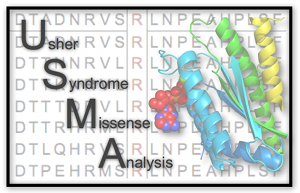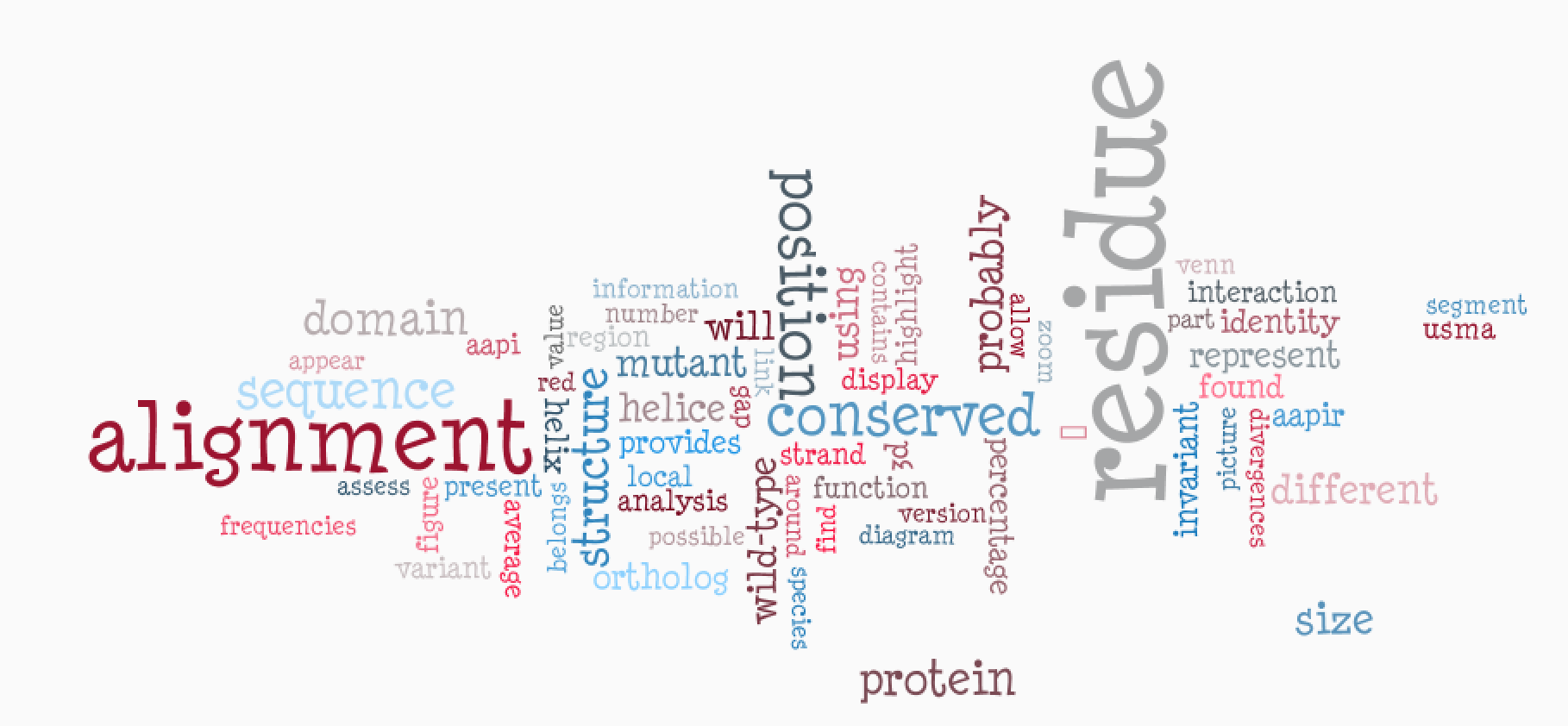If you are somewhat dealing with the genetics of Usher syndrome (USH), you may find this website useful. In some of the several genes
involved in Usher syndrome, missense variants can account for up to 50% of causing or considered as causing variants (USH2A and MYO7A especially). In some other cases,
missense variants appear in specific domains, and can cause either USH or non-syndromic deafness (especially in PCDH15 or CDH23).
Therefore, accurate and specific interpretation of missense variants is particularly interesting for these genes. As in vitro testing is difficult and expensive, and
cannot be performed extensively, bioinformatics tools are well indicated to predict the impact of missense variants. However these type of analysis requires time, if
"manually" performed. You can also use "pathogenic-or-not predictors", such as SIFT,
Align GVGD,
MAPP,
PolyPhen, or others. These kind of predictors are now quite accurate,
but present two major disadvantages: often you don't know why the software considers your variant as pathogenic (or not), and, moreover, they theoretically run all variants of
all genes. Therefore, specific information cannot be used.
The USMA tool is restricted to a little set of genes, and all accessible information is used to analyse your variant. But the phylosophy of the project is also different
of other predictors: the website is dedicated to biologist and thus considers them as scientists. In other words, you will make the interpretation of
the effect of the variant by yourself. The software justs performs fastidious calculations, and gives you all the results, with clues (and help if you need) in order to decide whether
your variant can be considered as pathogenic.
Considering all this, the thing is that we believe that interpreting a missense variant take some time, and therefore USMA is clearly not designed for high-throughput analyses.
Then no batch mode is provided in this website. but feel free to download source code and to adapt it to your specific needs.
Please also note that the software does not consider splicing alterations. Please find below some links that can be useful to test the effect on splicing of
your variant.




